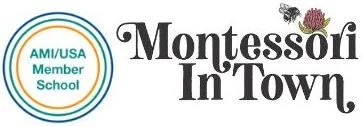Excerpted from 'What is Montessori Elementary?' by David Kahn
In Montessori elementary, the chid's own questions provide the basis for exploration of the world. Because these questions are heeded and nurtured, the child really connects with knowledge. Subject matter, then, is made relevant to the child's personal quest, providing an inner motivation. A Montessori elementary education does not give the child a collection of trivial facts but rather bestows a vision of interrelated knowledge and a love of learning.
Angeline Lillard and Nicole Else-Quest
An analysis of students' academic and social scores compares a Montessori school with other elementary school education programs.
Denise Nelson, O.T.R.
An introduction to understanding Sensory Integration, by Denise Nelson, O.T.R.
Lindsey Biel and Nancy Peske
The authors of Raising a Sensory Smart Child, describe how sensory integration disorder can affect your child's social skills and ways to help, in this exclusive interview.
Annette Haines, Ed.D.
This wonderful article by Annette Haines, Ed.D. is for Montessori classroom assistants.
Ginni Sackett
Positive Phrasing is about aligning the emotional and verbal content of communication in positive respectful and productive ways. Positive phrasing is the art of saying what is rather than what isn’t.
Annabelle Lawrence
... freedom and discipline are two inseparable realities, two sides to the same coin. To be disciplined, freedom is required in order that a person’s will is developed. Freedom cannot be confused with the absence of discipline, but rather it means to function independently without the immediate help of others. Furthermore, to be disciplined does not mean to have another person guiding one’s every move but instead to be self-disciplined, and to master the regulation of one’s own conduct.
Mamatha Chiruvella
With so much information available to new parents, it can be very overwhelming to distinguish between fact and fiction. Potty training can be especially stressful when you’re trying to get a child ready to start preschool, go on a vacation or have another baby on the way.
The first secret it to flip your idea of this process. You will not be potty training. Your child will be potty learning. This is not an adult-directed activity; this is your child learning independence. Your child’s body (with the help of her mind) will be learning how to control this bodily function. The good news is that this is something innate and natural.
www.montessorianswers.com
Montessorians believe in natural and logical consequences as opposed to punishment. Conflict resolution and respect for the environment, (both physical and environmental), are also important aspects of our approach. For it is one of our ultimate goals that our students do the right thing, not because they will be punished if they don’t, but because they don’t want to adversely affect the people and world around them.
www.howwemontessori.com
One of my friends recently commented that she would like to do more Montessori in the home but doesn't know how. She has a good understanding of Montessori but it isn't coming together for her. She prepares activities her child isn't interested in and now he's in preschool she wonders if it's worth the effort.
Pilar Bewley
... When a child is shown how to do something, and then she’s allowed to do it on her own (as the Montessori method encourages), she understands that she is viewed as capable and trustworthy in the eyes of adults. This raises her self-esteem more than any amount of verbal praise ever will. ...










